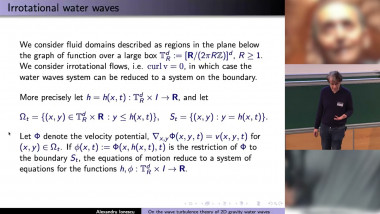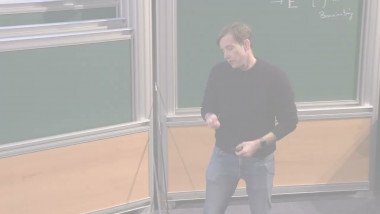
On the Wave Turbulence Theory of 2D Gravity Water Waves
De Alexandru Ionescu

Anomalous Diffusivity and Regularity for Random Incompressible Flows
De Scott Armstrong
Apparaît dans la collection : Jean Morlet Chair - Research school: Random quantum channels: entanglement and entropies / Chaire Jean Morlet - Ecole: Canaux quantiques aléatoires: Intrication et entropies
One of the most important question in Quantum Information Theory was to figure out whether the so-called Minimum Output Entropy (MOE) was additive. In this talk I will start by defining the counter-example originally built by Belinschi, Collins and Nechita. Then I will explain how with the help of a novel strategy, we managed with Collins to compute concentration estimate on the probability that the MOE is non-additive and how it yielded some explicit bounds for the dimension of spaces where violation of the MOE occurs. Finally, I will talk more in detail about this novel strategy which consists in interpolating random matrices and free operators with the help of free stochastic calculus.
